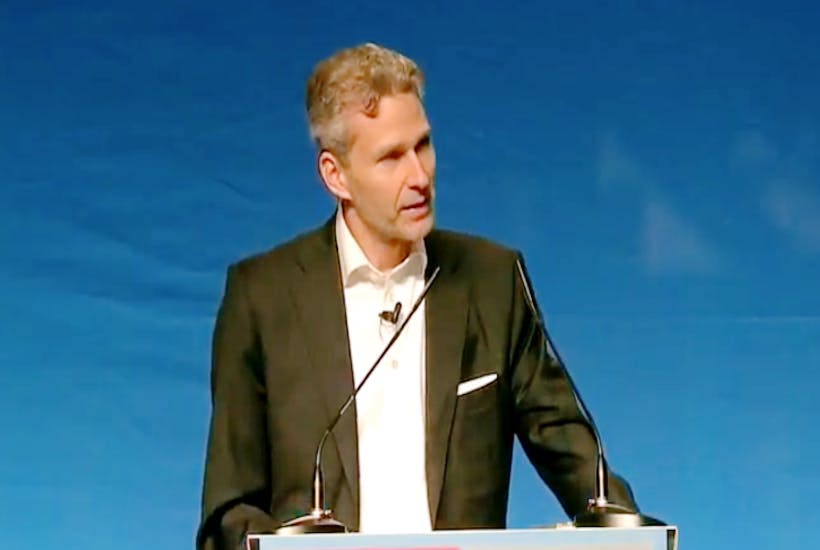The Cambridge Analytica story is full of hot air. Everybody delights in talking about how scary Facebook is, and lots of people believe the Donald Trump and Brexit campaigns somehow hoodwinked whole electorates — because, well, how else could they have won? We hear about creepy and sophisticated–sounding techniques such as ‘micro-targeting’ and ‘psychographics’. But there is a far bigger story, which goes beyond the antics of Cambridge Analytica or its parent company, Strategic Communications Laboratories (SCL Group), and other such businesses. It’s about how organisations from the developed world exploit small countries to advance dubious interests and make masses of money.
Take passport-selling. It may sound illicit, but in fact ‘citizenship-by-investment’ is a lawful global industry worth about $2 billion. Advanced countries do it too, in various ways: Britain offers ‘Tier 1’ residency visas in exchange for £2 million, for instance, and residents in turn can apply for citizenship. Representatives from the industry often say that their trade is a legitimate resource for high-net-worth individuals, and who doesn’t love high-net-worth individuals? But such enterprises will always attract unsavoury characters: the sort of people in the market for a second, third or even fourth passport who aren’t always welcome everywhere.
The king of this industry — or ‘Mr Passports’ — is Dr Christian Kalin, the chairman of Henley & Partners. Kalin presents himself as a progressive visionary. Suave and articulate, he gives speeches about moving the world beyond simplistic notions of nationhood. To his critics, he’s an upmarket Arthur Daley flogging passports to dodgy rich people while trying to interfere in elections for the benefit of mysterious investors. The Spectator has seen documents that offer startling insights into his world — and his activities.
About ten years ago Kalin struck up a relationship with the now notorious Alexander Nix of Cambridge Analytica: not a ‘formal working relationship’, his company says, ‘we did, however, exchange some information and ideas with a view to better understanding the political landscape in the Caribbean.’ SCL worked on a successful campaign to win the 2010 general election in St Kitts and Nevis in the Caribbean, where a ‘citizenship-by-investment’ programme, pioneered in 2006 by Henley & Partners, had brought millions to the region. There SCL practised the dirty tricks — or ‘counter ops’ — that Nix was caught bragging about to undercover reporters in last week’s Channel 4 exposé.
Nix was not exaggerating. One of the dirty tricks was a sting operation in St Kitts and Nevis. SCL filmed the opposition leader, Lindsay Grant, being offered a bribe by an under-cover operative posing as a real-estate investor. Grant didn’t exactly help himself by accepting the bribe and even suggesting which offshore bank accounts the money could be paid into.
The same year, SCL and Kalin worked together on an another election campaign, this time in St Vincent and the Grenadines. (SCL tells clients they don’t lose. Not true: they lost this one.) There, they worked with Arnhim Eustace, leader of the opposition. SCL billed Eustace’s New Democratic Party (NDP) more than $4 million, including $100,000 for ‘counter operations’.
In emails seen by The Spectator, Kalin describes to Eustace what ‘we could do with you once you are in government’. He even goes on to suggest what the candidate might say in his campaign. ‘You might wish to discuss this with your strategists,’ he tells Eustace, ‘and think about what you may wish to include in your propaganda (having used this word, the below points are not propaganda but is very much a reality if you let us do it). If there is an acceptable government in place (i.e. NDP) you can count on the following.’
Kalin then lists various investments that Eustace could count on if he won the election, such as a large residential and hotel development, a new chain of retail banks from ‘an important international banking group’, a construction group to invest in major infrastructure projects, as well as input from ‘a global player in private air-craft services’ and from ‘several of the world’s most experienced international tax specialists’.
Henley & Partners says it ‘does not get involved in political campaigns’ — but here was its chief briefing a candidate on what to say on the stump. Such promises are not necessarily illegal, nor are they even corrupt. Henley says that Kalin’s email ‘does not suggest any impropriety’. Perhaps Mr Passports was indeed promising all these goodies in order to bring prosperity to the region. But perhaps he had other benefits in mind as well. Maybe the investors could get the government they wanted, Kalin could get a passports deal, and SCL could charge exorbitant sums of money to run the election campaigns. Win, win, win — except they lost. (A grim aside: one of the SCL operatives from the St Vincent campaign, Dan Muresan, was later found dead in ‘mysterious circumstances’ in a hotel room in Kenya. It is believed that at the time of his death he was working for SCL on President Kenyatta’s campaign.)
Christian Kalin’s most controversial contract has been with the government of Malta. Four years ago Henley & Partners was granted permission to handle the selling of Maltese citizenship to eligible investors who pay €650,000 for a passport. This is especially valuable because Malta is an EU member state, so its passport-holders can live and work anywhere in Europe. The scheme even permits individuals with criminal records to obtain passports, provided that ‘the applicant is still worthy of being considered for approval due to special circumstances’. According to critics (including some European MEPs), that leaves Malta’s passporting system — and Europe’s borders — open to all sorts of international criminals.
The Maltese investigative journalist Daphne Caruana Galizia repeatedly criticised these arrangements. She wrote on her blog that she had received ‘a series of harassing and threatening letters’ from a London–based law firm, requesting her to remove her posts relating to Henley & Partners. And she posted an email to her from Christian Kalin which said: ‘everyone is entitled to his or her own opinion… I would like to ask you once again politely to remove any defamatory and incorrect statements.’ ‘Malta is not St Kitts and Nevis,’ she snapped back.
In October last year, a car bomb killed Caruana Galizia. There are no grounds for believing this had anything to do with Kalin or Henley. She had investigated all sorts of organised crime in Malta: any number of people could have wanted her dead. But one of the tragedies of her death is that the questions she raised about the Maltese passport scheme remain unanswered. Just over a week after her death, the Maltese prime minister Joseph Muscat went to a ‘Global Citizenship’ conference in Dubai, hosted by Henley & Partners, to tell the world that Malta was ‘open for business’.
But what kind of business?
Henley & Partners and the Individual Investor Programme of Malta have contacted us to say that although there is legal provision for individuals with criminal records to become citizens where special circumstances exist, this provision has not so far been resorted to and all applicants who have been deemed eligible under the Programme have satisfied the stringent rules imposed by law.






Comments